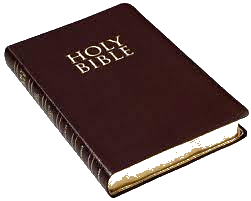 Author
Topic: Faith vs Ethics (Read 2599 times)
Author
Topic: Faith vs Ethics (Read 2599 times)
0 Members and 1 Guest are viewing this topic.
|
Was the Father's will always subordinate to the Son's will?
by RabbiKnife
Yesterday at 07:07:26 PM
|
Watcha doing?
by IMINXTC
May 10, 2025, 11:50:04 PM
|
The Prophecy of the Popes or the "Pope is dead, long live the Pope"
by Fenris
May 10, 2025, 10:12:24 PM
|
Looks like bibleforums.org has been hacked and harbors a malicious script
by shepherdsword
May 10, 2025, 07:54:12 AM
|
There is a new Pope
by shepherdsword
May 10, 2025, 02:27:18 AM
|
Continuity Gaffes
by Fenris
May 09, 2025, 03:01:58 PM
|
Plot holes
by Cloudwalker
May 09, 2025, 12:00:25 PM
|
Antichrist
by shepherdsword
May 09, 2025, 07:08:55 AM
|
Anybody seen "The House of David" series?
by Sojourner
May 08, 2025, 02:13:35 PM
|
Better known as
by Sojourner
May 05, 2025, 11:35:49 AM
|
Pray for my brother
by Kingfisher
May 02, 2025, 08:06:37 AM
|
US Presidental Election
by IMINXTC
April 28, 2025, 11:32:43 PM
|
The time gaps in the life of a prophet
by Fenris
April 27, 2025, 11:45:10 AM
|
US National Debt
by Fenris
April 24, 2025, 01:22:48 PM
|
Is free will a failed concept?
by Athanasius
April 20, 2025, 12:36:15 PM
|
[Lord] You were beautiful
by Billy Evmur
April 17, 2025, 07:20:43 PM
|
The Jews will be kept safe in the Great Tribulation
by Billy Evmur
April 16, 2025, 03:51:04 AM
|
Song of Ruth
by Billy Evmur
April 15, 2025, 07:22:08 AM
|
Is Answers in Genesis becoming a cult?
by Fenris
April 06, 2025, 12:14:10 PM
|
The ECF and theosis
by watchinginawe
April 01, 2025, 10:04:56 PM
|
|
|





